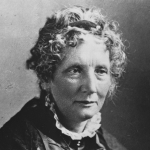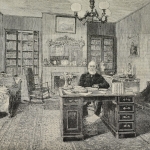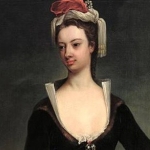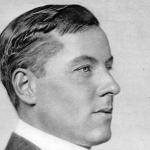Like the waxwings in the juniper,
a dozen at a time, divided, paired,
passing the berries back and forth, and by
nightfall, wobbling, piping, wounded with joy.
Or a party of redwings grazing what
falls—blossom and seed, nutmeat and fruit—
made light in the head and cut by the light,
swept from the ground, carried downwind, taken....
It's called wing-rowing, the wing-burdened arms
unbending, yielding, striking a balance,
walking the white invisible line drawn
just ahead in the air, first sign the slur,
the liquid notes too liquid, the heart in
the mouth melodious, too close, which starts
the chanting, the crooning, the long lyric
silences, the song of our undoing.
It's called side-step, head-forward, raised-crown, flap-
and-glide-flight aggression, though courtship is
the object, affection the compulsion,
love the overspill—the body nodding,
still standing, ready to fly straight out of
itself—or its bill-tilt, wing-flash, topple-
over; wing-droop, bowing, tail-flick and drift;
back-ruffle, wingspread, quiver and soar.
Someone is troubled, someone is trying,
in earnest, to explain; to speak without
swallowing the tongue; to find the perfect
word among so few or the too many—
to sing like the thrush from the deepest part
of the understory, territorial,
carnal, thorn-at-the-throat, or flutelike
in order to make one sobering sound.
Sound of the breath blown over the bottle,
sound of the reveler home at dawn, light of
the sun a warbler yellow, the sun in
song-flight, lopsided-pose. Be of good-cheer,
my father says, lifting his glass to greet
a morning in which he's awake to be
with the birds: or up all night in the sleep
of the world, alive again, singing.



















Comment form: